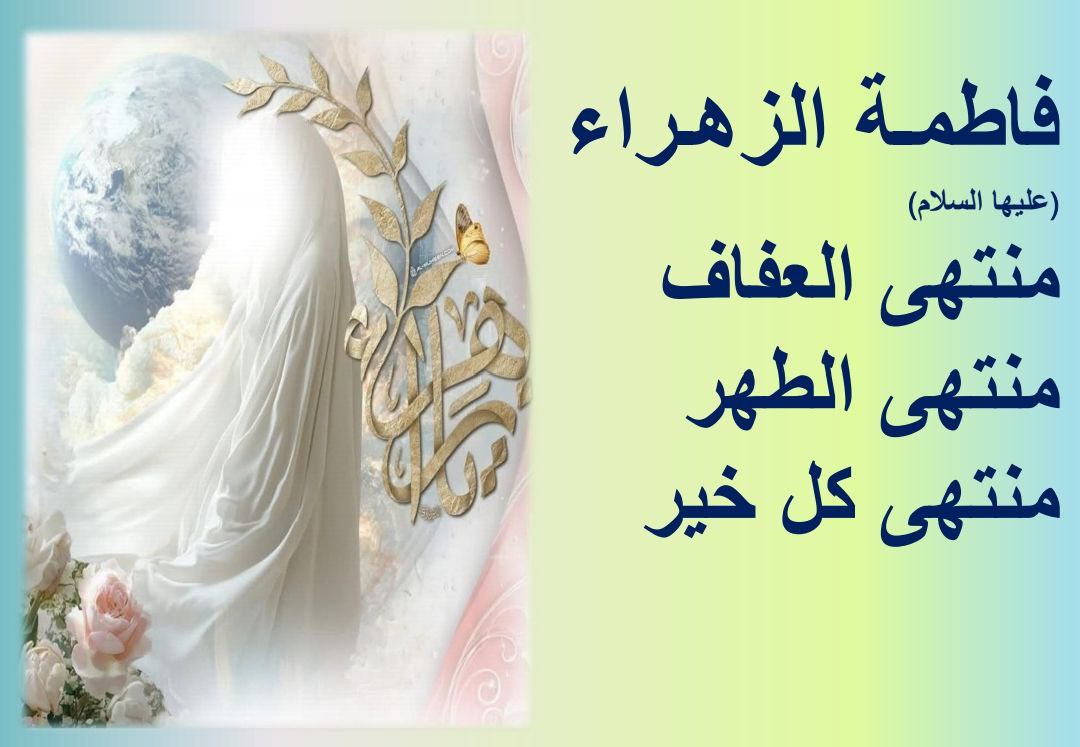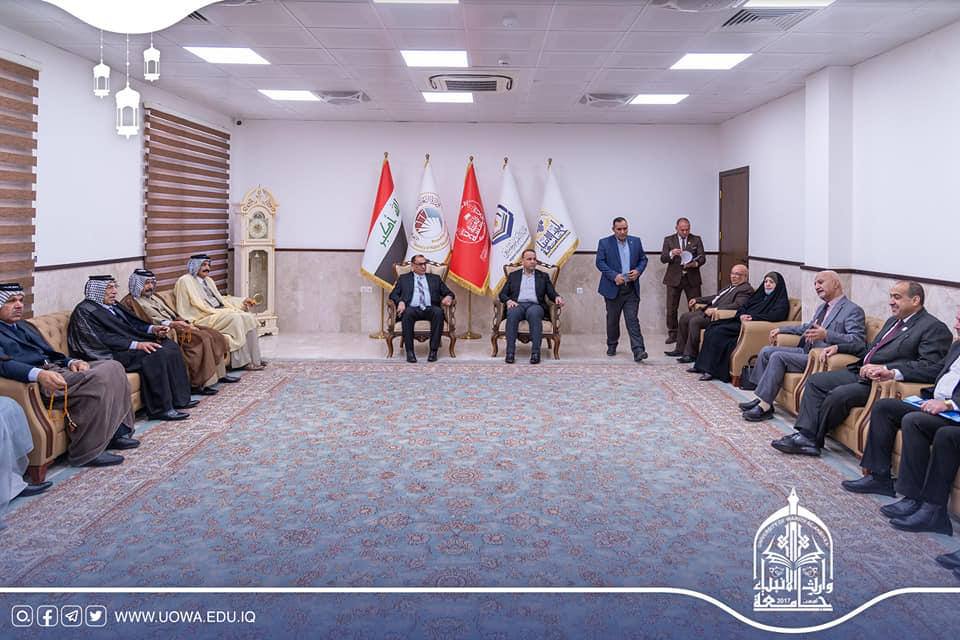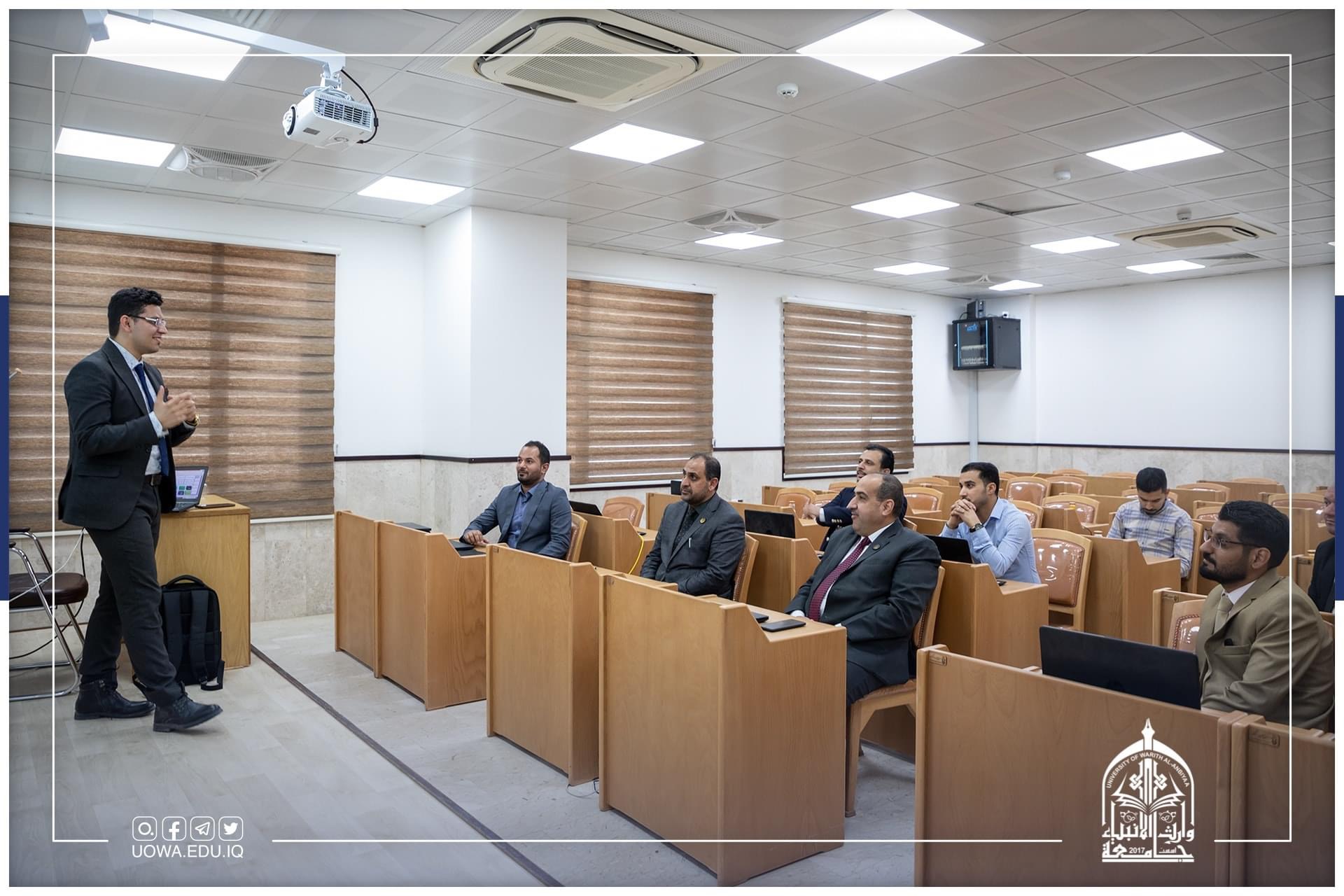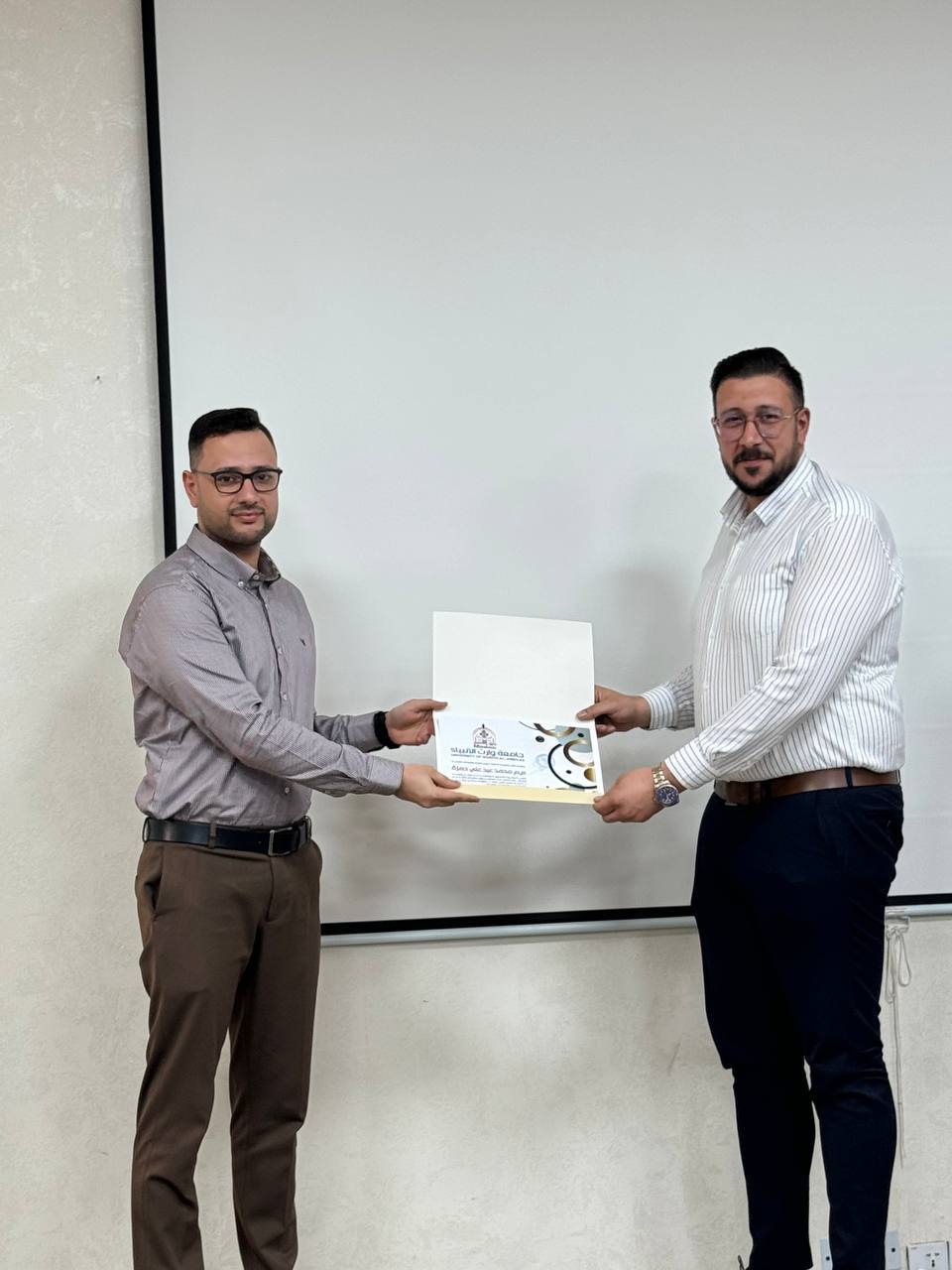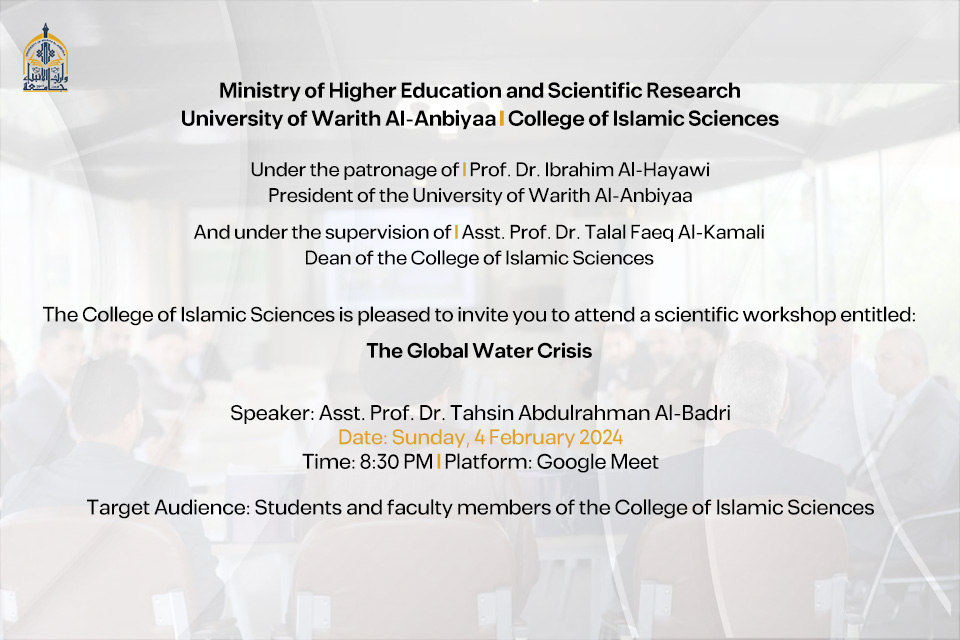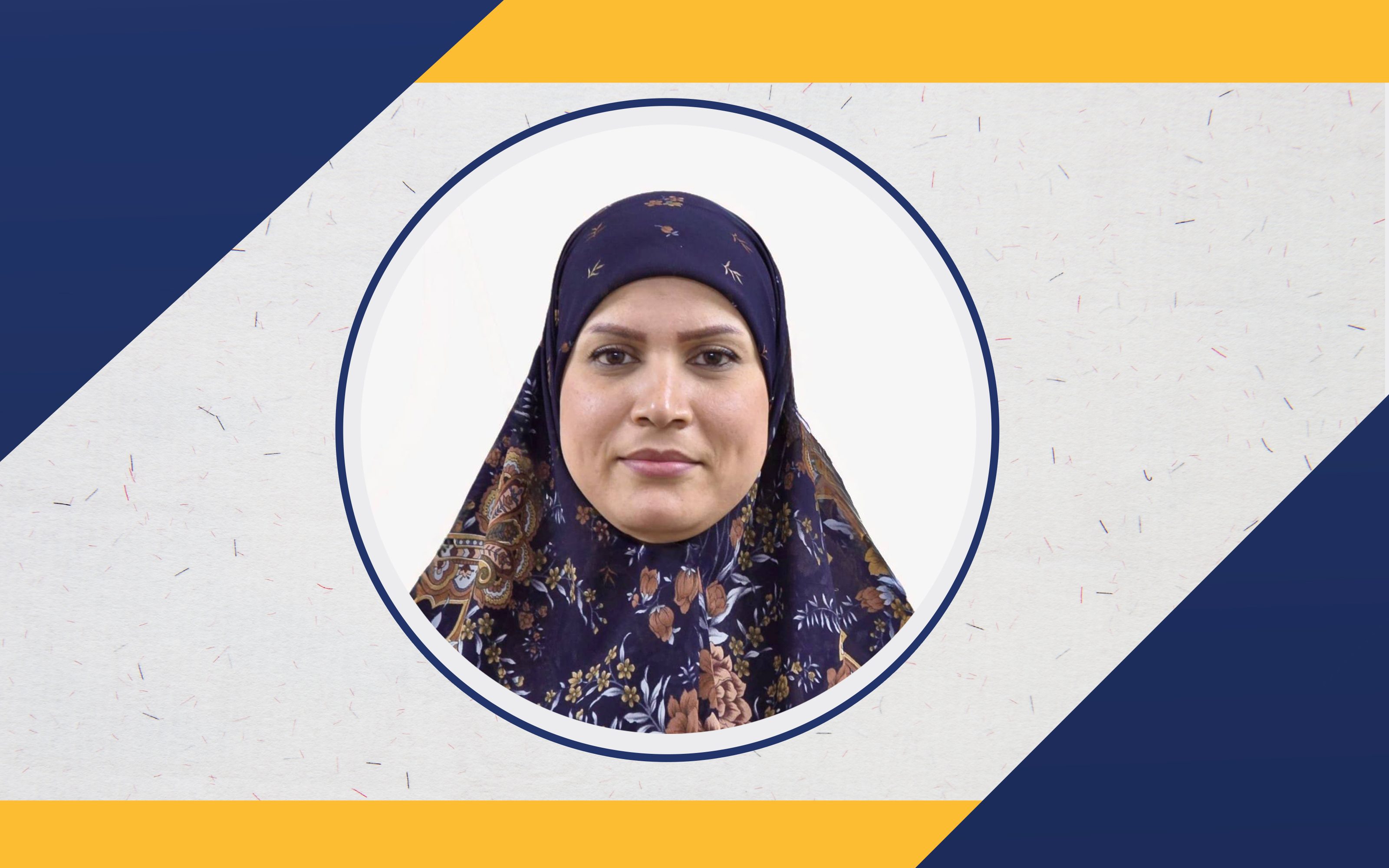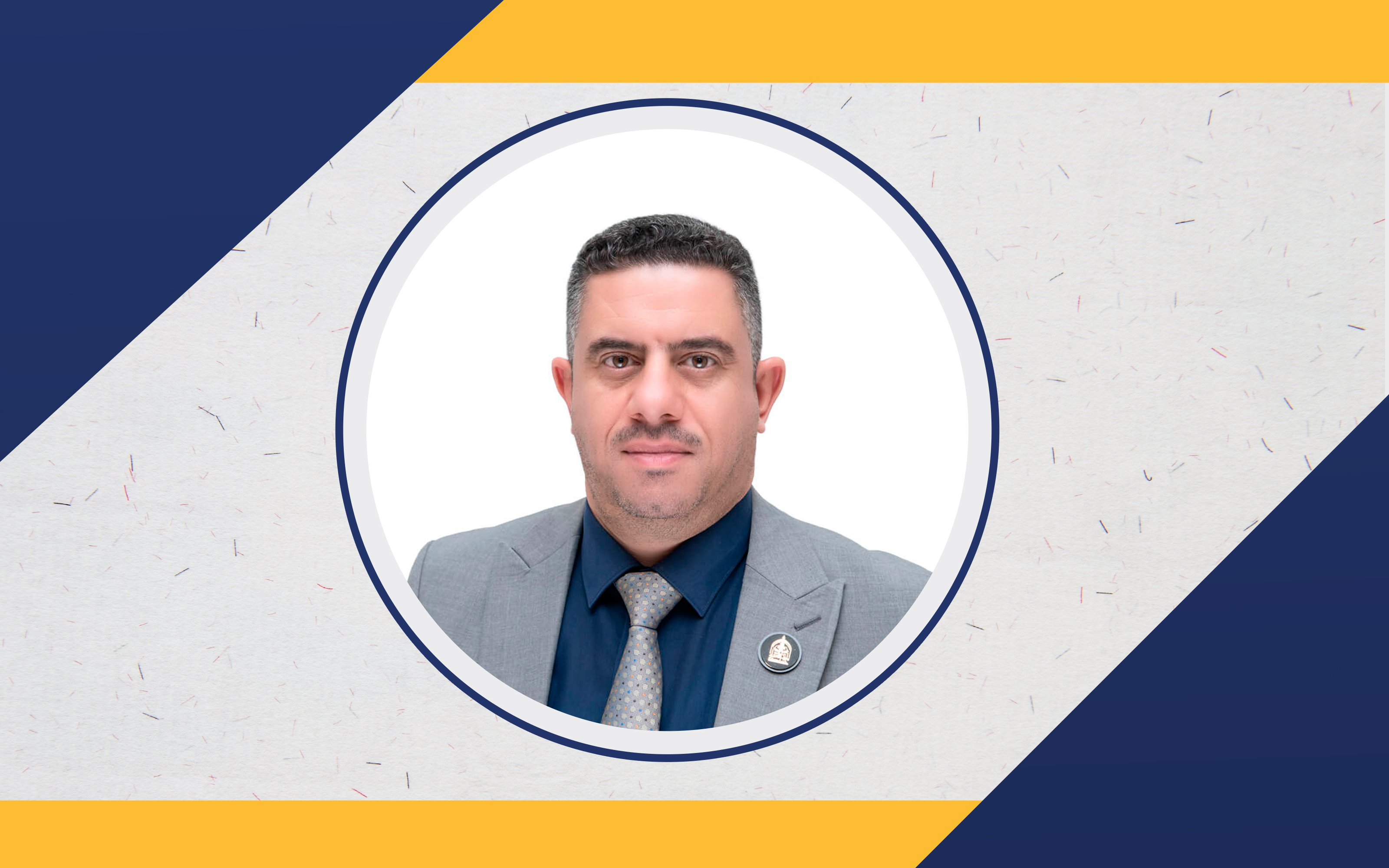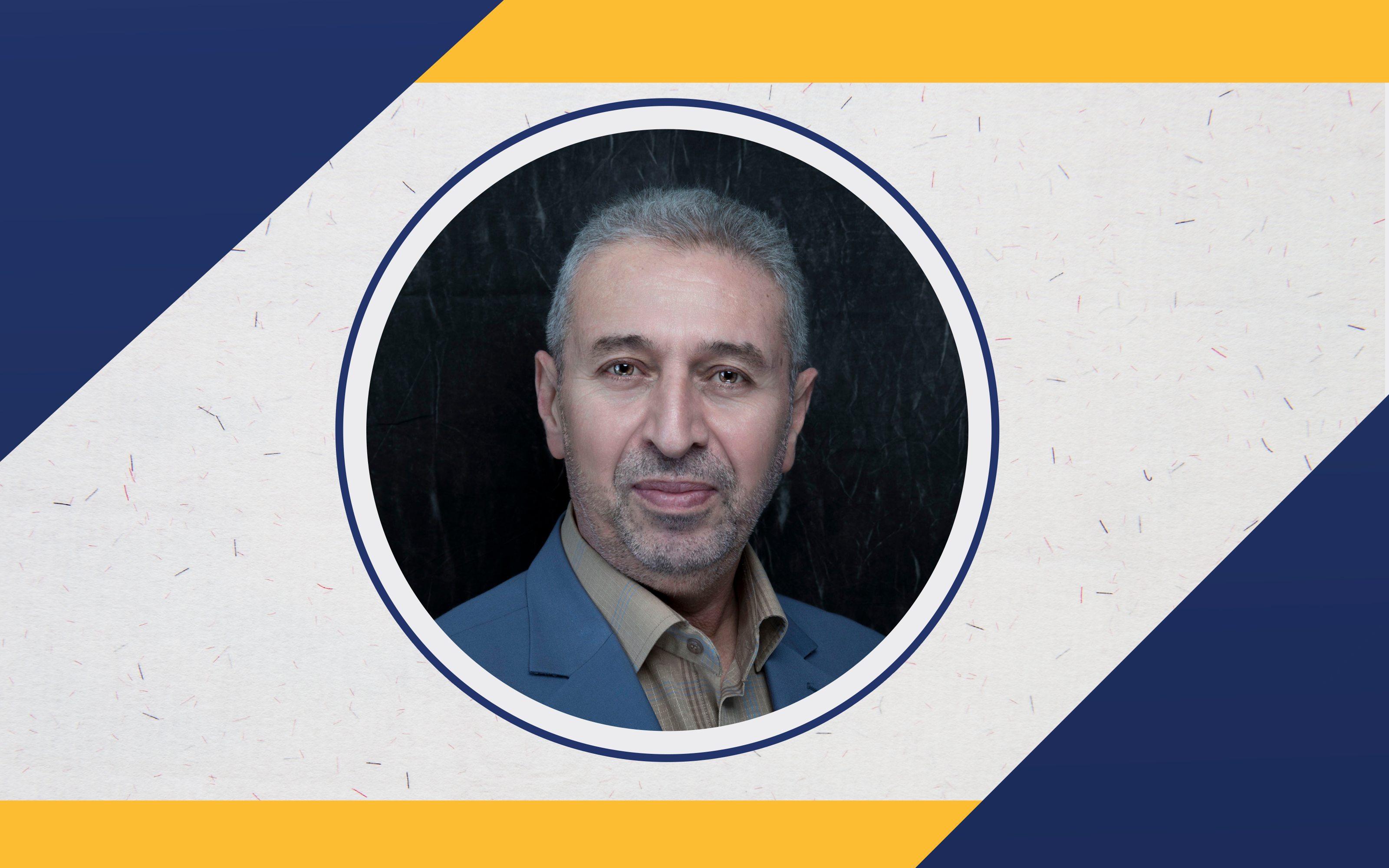The University of Warith Al-Anbiyaa, through its College of Islamic Sciences, has taken a proactive role in shaping national and regional discussions on sustainable water management — a critical theme within the United Nations Sustainable Development Goals (SDG 6: Clean Water and Sanitation).
On 4 February 2024, the College organised a workshop titled “Global Water Crisis”, delivered online via Google Meet by Assistant Professor Dr Tahseen Abdulrahman Al-Badri. The session brought together university students, faculty, and representatives of local government authorities, creating a multi-stakeholder dialogue that bridged academic insight with policymaking practice.
Dr Al-Badri’s presentation examined the root causes of the global water crisis and framed them within the Iraqi and regional context, identifying challenges that governments and communities currently face. He proposed comprehensive, multi-level strategies — including local, regional, and international interventions — which align with Iraq’s water security priorities. A formal solution proposal was prepared and submitted to relevant authorities, marking the university’s contribution to policy development and actionable planning.
The workshop also incorporated policy modelling and scenario planning, contrasting possible futures with and without immediate interventions. This approach strengthens the capacity for adaptive management, enabling government and non-governmental actors to adjust policies as conditions evolve.
Supported by the Ministry of Higher Education and Scientific Research and under the sponsorship of University President Prof. Dr. Ibrahim Al-Hayawi and Dean Dr. Talal Faeq Al-Kamali, this initiative demonstrates the university’s direct involvement in national SDG policy development. It reflects a commitment not only to advancing scientific research but also to providing government and non-governmental bodies with the evidence base and community engagement tools necessary for sustainable water management.
Through such initiatives, the University of Warith Al-Anbiyaa continues to act as a trusted academic partner in addressing Iraq’s most pressing environmental and societal challenges and in shaping adaptive, policy-driven solutions in line with the SDGs.
